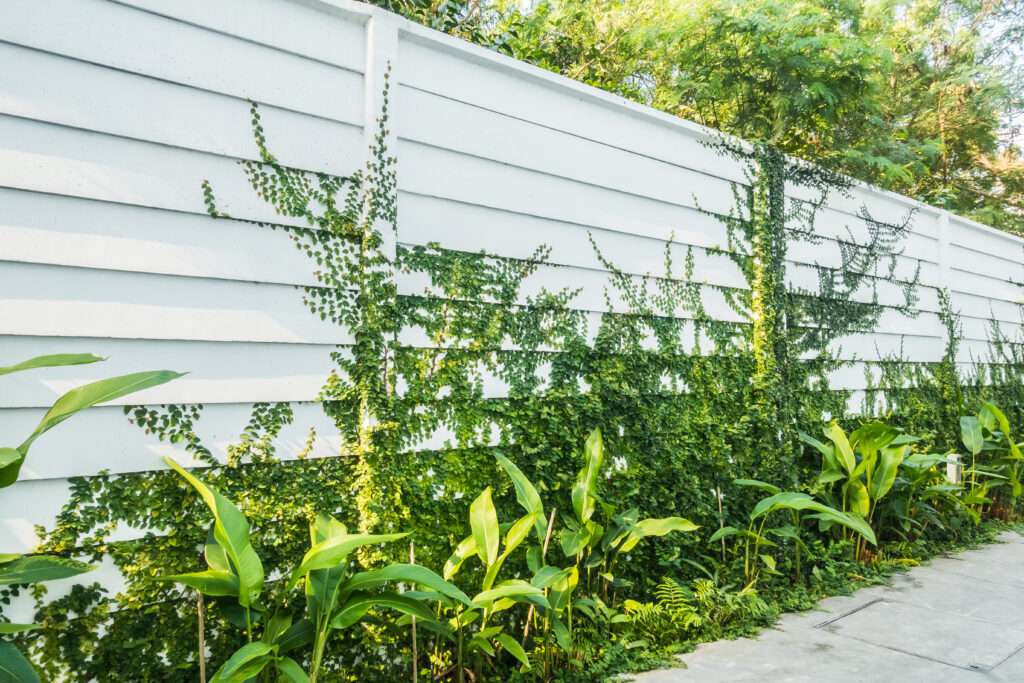How Long Does a Vinyl Fence Last? A Comprehensive Guide
Table of Contents
Introduction
Vinyl fences are a popular choice for homeowners seeking durability, aesthetic appeal, and minimal maintenance. But a common question among potential buyers is, “How long does a vinyl fence last?” In this guide, we’ll answer that question while diving into the factors that influence a vinyl fence’s longevity and tips for making it last even longer.
What Is a Vinyl Fence?
A vinyl fence is made from polyvinyl chloride (PVC), a synthetic material renowned for its resilience and flexibility. Unlike wood or metal, vinyl doesn’t warp, rot, or rust, making it an ideal choice for fencing.
Benefits of Vinyl Fencing

1. Durability
Vinyl fences are incredibly durable, offering resistance to common issues like rotting, warping, and pest damage. Unlike wood, vinyl does not absorb moisture, making it ideal for areas with heavy rainfall or high humidity. Additionally, many vinyl fences are treated with UV inhibitors to withstand prolonged sun exposure without fading or becoming brittle.
2. Low Maintenance
One of the most appealing benefits of vinyl fencing is its low maintenance requirements. Unlike wood fences that need regular staining or painting, a vinyl fence only requires occasional cleaning with soap and water to maintain its appearance. This saves homeowners significant time and money over the life of the fence.
3. Aesthetic Appeal
Vinyl fences are available in a wide range of styles, colors, and finishes, allowing homeowners to select a design that complements their property. From classic white picket fences to modern privacy panels, vinyl can enhance the curb appeal of any home. Moreover, the color is integrated into the material, reducing the likelihood of peeling or chipping.
4. Cost-Effective
While the initial cost of a vinyl fence may be higher than other materials, its longevity and minimal maintenance requirements make it a cost-effective choice in the long run. With fewer repairs and no need for expensive treatments, vinyl fencing provides excellent value for money over its lifespan.
5. Environmentally Friendly
Many vinyl fences are made from recyclable materials, making them an eco-friendly option for homeowners. Additionally, their long lifespan reduces the need for frequent replacements, minimizing waste.
6. Safety and Flexibility
Vinyl fencing is free from sharp edges, splinters, or nails, making it a safe choice for families with children or pets. Its flexibility also allows it to withstand impacts better than rigid materials like wood or metal, reducing the likelihood of breakage.
Factors That Affect the Lifespan of a Vinyl Fence
a. Quality of Materials
The grade of vinyl used in your fence significantly impacts its longevity. High-quality materials, often reinforced with UV inhibitors, are more resistant to fading, cracking, and other forms of wear. Lower-grade vinyl might be cheaper initially but often lacks the durability to withstand environmental stressors.
b. Installation Practices
Proper installation is crucial for the longevity of your vinyl fence. Posts should be deeply anchored to ensure stability, especially in areas prone to high winds. Misaligned or loosely fitted panels can create stress points, making the fence more vulnerable to damage. Professional installation often results in a more robust structure compared to DIY attempts.
c. Maintenance and Care
While vinyl fences require minimal upkeep, neglect can lead to issues over time. Dirt, mold, and algae can accumulate on the surface, potentially affecting the fence’s appearance. Regular cleaning with mild detergent and water can prevent build-up and maintain the fence’s aesthetic appeal. Promptly addressing minor damages, like cracks or loose panels, can also prevent more significant problems down the line.
d. Weather Conditions
The local climate plays a significant role in the lifespan of a vinyl fence. Prolonged exposure to intense sunlight can cause discoloration or brittleness, though high-quality vinyl is often treated to resist UV damage. Harsh winters, with cycles of freezing and thawing, can create stress on the material. Additionally, strong winds or heavy storms may test the structural integrity of the fence. Installing in a climate-appropriate manner and using quality materials can mitigate these effects.
How Long Does a Vinyl Fence Last?
On average, a vinyl fence can last 20 to 30 years or even longer with proper care. Many manufacturers offer warranties that span decades, reflecting their confidence in the product’s durability. Unlike wood, which is prone to rot, or metal, which can rust, vinyl fences are designed to endure the test of time with minimal degradation.
Tips to Extend the Lifespan of Your Vinyl Fence
- Regular Cleaning: Wash with mild soap and water to remove dirt and stains.
- Inspect for Damage: Regularly check for cracks or loose posts.
- Avoid Harsh Impacts: Prevent heavy objects or machinery from striking the fence.
- Protect Against Extreme Conditions: Add reinforcements in areas prone to high winds.
Comparing Vinyl Fences to Other Materials
- Wood: While wood offers a classic look, it requires frequent maintenance and has a shorter lifespan.
- Metal: Metal fences are durable but can rust without proper care.
- Vinyl: Combines the best of both worlds—long-lasting and low maintenance.
Signs It Might Be Time to Replace Your Vinyl Fence
- Noticeable discoloration or fading.
- Significant structural damage, such as cracked or broken panels.
- Loose or unstable posts.
Conclusion
So, how long does a vinyl fence last? With the right materials, proper installation, and minimal maintenance, you can enjoy the benefits of a vinyl fence for decades. Its durability, aesthetic appeal, and cost-effectiveness make it a smart choice for homeowners looking for a long-term fencing solution.
Frequently Asked Questions
How much maintenance does a vinyl fence require?
Very little. Regular cleaning with soap and water is usually sufficient.
Can vinyl fences withstand harsh weather?
Yes, high-quality vinyl fences are designed to resist extreme weather conditions.
Are vinyl fences environmentally friendly?
Many vinyl fences are recyclable, making them an eco-conscious choice for homeowners.